Modular Temporary Labor Camps: Adaptable Solutions for Rapid Deployment Needs
In an increasingly interconnected and fast-paced global economy, the demand for reliable, adaptable, and quickly deployable temporary housing solutions has become a critical priority for a wide range of industries and organizations. From large-scale construction projects and disaster relief efforts to remote mining operations and emergency response scenarios, the need for high-quality, self-sufficient temporary accommodations that can be rapidly established and efficiently scaled to meet evolving demands has never been greater.
At the forefront of this growing market for modular, rapidly deployable temporary living solutions, Lida Group has emerged as a pioneer in the development of innovative modular temporary labor camps – cutting-edge prefabricated housing systems designed to provide comfortable, self-sustaining living environments that can be swiftly deployed and seamlessly integrated to support the diverse needs of modern workforce operations and emergency response initiatives.
“As the global economy continues to evolve and the demand for flexible, on-demand housing solutions escalates across a wide range of industries, the role of modular, rapidly deployable temporary labor camps has become increasingly central to the conversation around workforce optimization, emergency preparedness, and the strategic management of critical resources,” explains Sarah Johnson, the lead project manager for Lida Group’s modular temporary housing division.
“By harnessing the inherent advantages of prefabricated, modular construction – such as rapid deployment, enhanced logistical efficiency, and reduced on-site disruption – we’ve been able to create a portfolio of temporary labor camp solutions that can not only meet the practical needs of our clients but also contribute to the broader goals of workforce well-being, operational resilience, and community-driven sustainability.”
At the heart of Lida Group’s modular temporary labor camp offerings lies a deep emphasis on the strategic integration of advanced building technologies, comprehensive resource management systems, and community-centric design principles – design priorities that can help to transform these innovative living environments into self-sustaining, resilient, and adaptable temporary accommodations capable of supporting a wide range of workforce and emergency response scenarios.
“Through the seamless blending of our cutting-edge prefabricated construction capabilities, high-performance energy and water systems, and carefully curated community amenities, we’re able to create modular temporary labor camps that can not only provide comfortable, functional living spaces for workers and responders but also empower them to maintain a high degree of self-sufficiency, operational continuity, and overall well-being – critical factors in enabling the success of complex, time-sensitive projects and emergency response initiatives,” Johnson explains.

Prefabricated Modular Construction: The Foundation of Rapid Deployment
At the core of Lida Group’s modular temporary labor camp solutions lies a deep commitment to the strategic deployment of prefabricated, modular construction techniques – an innovative approach to building design and deployment that can help to streamline the establishment of temporary living environments while also enhancing their overall quality, functionality, and environmental responsibility.
“By harnessing the inherent advantages of prefabricated, modular construction, we’re able to create temporary labor camp solutions that can be rapidly deployed, efficiently scaled, and seamlessly integrated to support the diverse needs of our clients – whether they’re managing large-scale construction projects, supporting remote mining operations, or responding to natural disasters and humanitarian crises,” Johnson explains.
“Through the strategic integration of our cutting-edge prefabrication capabilities, high-performance building materials, and comprehensive on-site resource management systems, we’re able to deliver temporary labor camp solutions that can not only meet the practical needs of their occupants but also contribute to the broader goals of workforce well-being, operational resilience, and community-driven sustainability.”
At the heart of Lida Group’s modular temporary labor camp offerings lies a sophisticated system of prefabricated, self-contained living modules – lightweight, high-strength building components that can be rapidly assembled and efficiently transported to even the most remote or challenging project sites.
“By prefabricating the core components of our temporary labor camp solutions in a controlled, off-site facility, we’re able to optimize the quality, consistency, and environmental responsibility of the construction process, while also dramatically reducing the time and logistical resources required to establish these critical workforce accommodations,” Johnson explains.
“Whether it’s the rapid deployment of self-contained living modules to support a remote mining operation or the seamless integration of our prefabricated labor camp solutions within a large-scale disaster relief effort, the inherent advantages of our modular construction approach empower us to deliver high-quality, functional temporary living environments that can be quickly and efficiently integrated to meet the evolving needs of our clients and the communities they serve.”
Furthermore, the modular, prefabricated design of Lida Group’s temporary labor camp solutions also enables a heightened level of on-site flexibility and adaptability – strategic priorities that can help to ensure the long-term viability and responsiveness of these innovative living environments as project requirements, workforce dynamics, and emergency response needs shift over time.
“One of the key advantages of our modular temporary labor camp offerings is their inherent ability to be easily reconfigured, expanded, or even relocated to new sites as the needs of our clients evolve,” Johnson says. “By leveraging the modularity and prefabricated nature of our building components, we’re able to empower our clients to quickly adapt the layout and functional capabilities of their temporary accommodations to meet the changing demands of their workforce, project sites, or emergency response scenarios.”
“Whether it’s rapidly scaling up the number of living units to support the influx of additional workers on a large-scale construction project or seamlessly reconfiguring the amenities and community spaces within our labor camp solutions to better serve the needs of first responders in the wake of a natural disaster, the inherent flexibility and adaptability of our prefabricated modular designs ensure that these innovative living environments can be efficiently and effectively deployed to meet the diverse and ever-evolving requirements of our clients.”
By seamlessly blending the structural integrity, logistical efficiency, and on-site flexibility of its advanced prefabricated modular construction capabilities with a deep commitment to high-performance building materials, comprehensive resource management systems, and community-centric design principles, Lida Group has been able to create a transformative portfolio of modular temporary labor camp solutions that can deliver unparalleled levels of comfort, self-sufficiency, and operational resilience – critical factors in enabling the success of complex, time-sensitive projects and emergency response initiatives across a wide range of industries and applications.
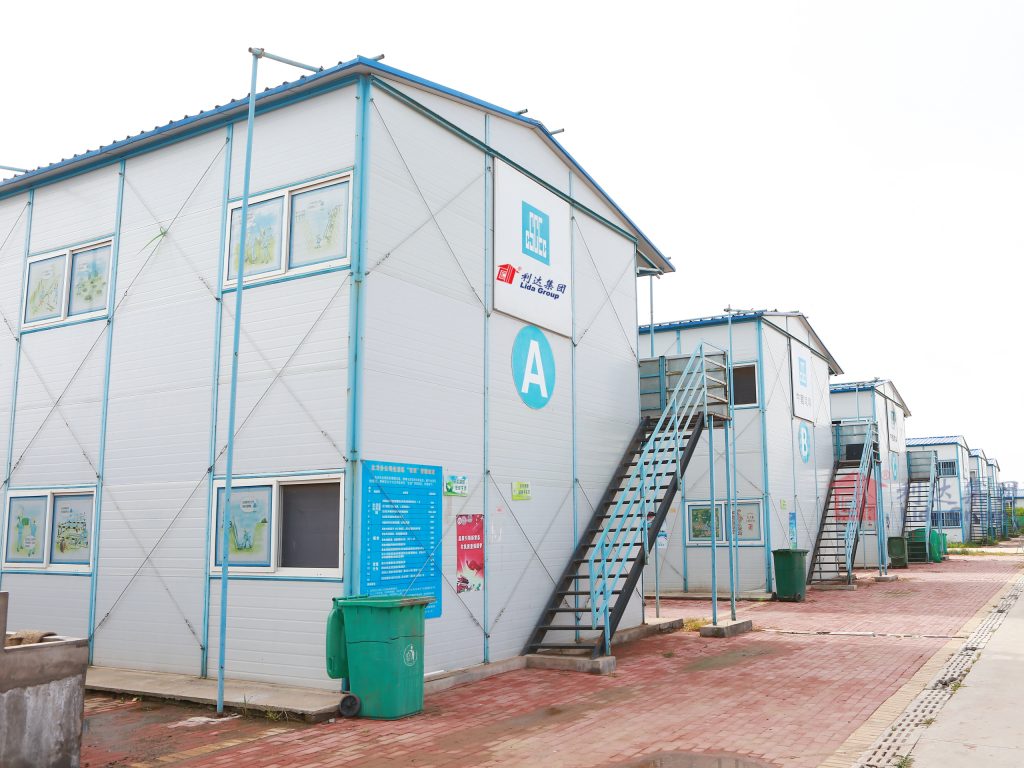
Integrated Energy and Water Management Systems
Alongside its emphasis on the strategic deployment of prefabricated, modular construction techniques, Lida Group has also placed a strong focus on the incorporation of cutting-edge energy and water management systems within its innovative portfolio of modular temporary labor camp solutions – design priorities that can help to transform these innovative living environments into self-sustaining, resource-responsible temporary accommodations capable of supporting the diverse needs of modern workforce operations and emergency response initiatives.
“As the global community continues to grapple with the pressing challenges of climate change, resource scarcity, and the growing demand for more sustainable, community-centric infrastructure, the role of integrated energy and water management systems has become increasingly central to the conversation around the future of temporary housing solutions and the overall optimization of critical workforce and emergency response capabilities,” Johnson explains.
“By harnessing the power of state-of-the-art renewable energy technologies, advanced water conservation systems, and comprehensive resource management strategies, we’re able to create modular temporary labor camp solutions that can not only meet the practical needs of their occupants but also contribute to the broader goals of environmental responsibility, operational resilience, and community-driven sustainability.”
At the heart of Lida Group’s energy-efficient, resource-responsible temporary labor camp offerings lies a deep emphasis on the strategic integration of high-performance solar photovoltaic (PV) arrays, intelligent battery storage systems, and advanced water recycling technologies – cutting-edge building systems that can empower these innovative living environments to generate their own clean, renewable electricity, minimize their reliance on municipal water supplies, and dramatically reduce their overall environmental impact.
“Through the seamless incorporation of rooftop solar PV panels, integrated battery banks, and comprehensive greywater recycling systems, our modular temporary labor camp solutions are engineered to operate as self-sustaining, off-grid living environments – factors that can not only significantly reduce the monthly utility costs and environmental footprint associated with these critical workforce accommodations but also empower their occupants to actively participate in the stewardship of precious natural resources and the broader transition towards a more sustainable, low-carbon future,” Johnson explains.
By leveraging the inherent advantages of its prefabricated modular construction approach, Lida Group has been able to strategically integrate these advanced energy and water management technologies within its temporary labor camp offerings in a manner that enhances their overall performance, reliability, and ease of deployment – critical factors in enabling these innovative living environments to meet the diverse needs of modern workforce operations and emergency response scenarios.
“One of the key advantages of our modular temporary labor camp solutions is their ability to seamlessly integrate cutting-edge renewable energy and water conservation systems, empowering these living environments to function as self-sustaining, off-grid accommodations capable of supporting the diverse needs of our clients and the communities they serve,” Johnson says.
“By strategically deploying high-efficiency solar PV arrays, intelligent battery banks, and comprehensive greywater recycling technologies within our prefabricated modular building components, we’re able to create temporary labor camp solutions that can not only meet the practical needs of their occupants but also contribute to the broader goals of environmental responsibility, operational resilience, and community-driven sustainability.”
Furthermore, to enhance the overall performance, reliability, and user-friendliness of these integrated energy and water management systems, Lida Group has also incorporated advanced building automation technologies and comprehensive resource monitoring capabilities within its modular temporary labor camp offerings – cutting-edge solutions that can empower the occupants of these innovative living environments to actively monitor, manage, and optimize their consumption of critical resources.
“In addition to deploying state-of-the-art renewable energy and water conservation systems, we’ve also invested heavily in the development of sophisticated building automation and resource monitoring technologies that can help to ensure the long-term operational efficiency and self-sufficiency of our modular temporary labor camp solutions,” Johnson explains.
“Through the strategic integration of smart meters, intelligent control systems, and comprehensive resource management platforms, we’re able to empower the occupants of these innovative living environments to closely track their energy and water usage, adjust their consumption patterns to optimize resource efficiency, and play a more active role in the stewardship of precious natural resources – critical factors in enabling the long-term sustainability and community-driven resilience of our modular temporary labor camp offerings.”
By seamlessly blending its core emphasis on prefabricated, modular construction with a deep commitment to the strategic integration of cutting-edge energy and water management technologies, Lida Group has been able to create a portfolio of innovative modular temporary labor camp solutions that can not only meet the practical needs of their occupants but also serve as tangible expressions of a more sustainable, resource-responsible future for workforce accommodations, emergency response infrastructure, and the broader built environment.
“Through the strategic deployment of our high-performance renewable energy systems, advanced water conservation technologies, and comprehensive resource monitoring capabilities, our modular temporary labor camp solutions are engineered to operate as self-sustaining, off-grid living environments – factors that can not only significantly reduce the monthly utility costs and environmental impact associated with these critical workforce accommodations but also empower their occupants to play a more active role in the stewardship of precious natural resources and the transition towards a more sustainable, low-carbon future,” Johnson says.
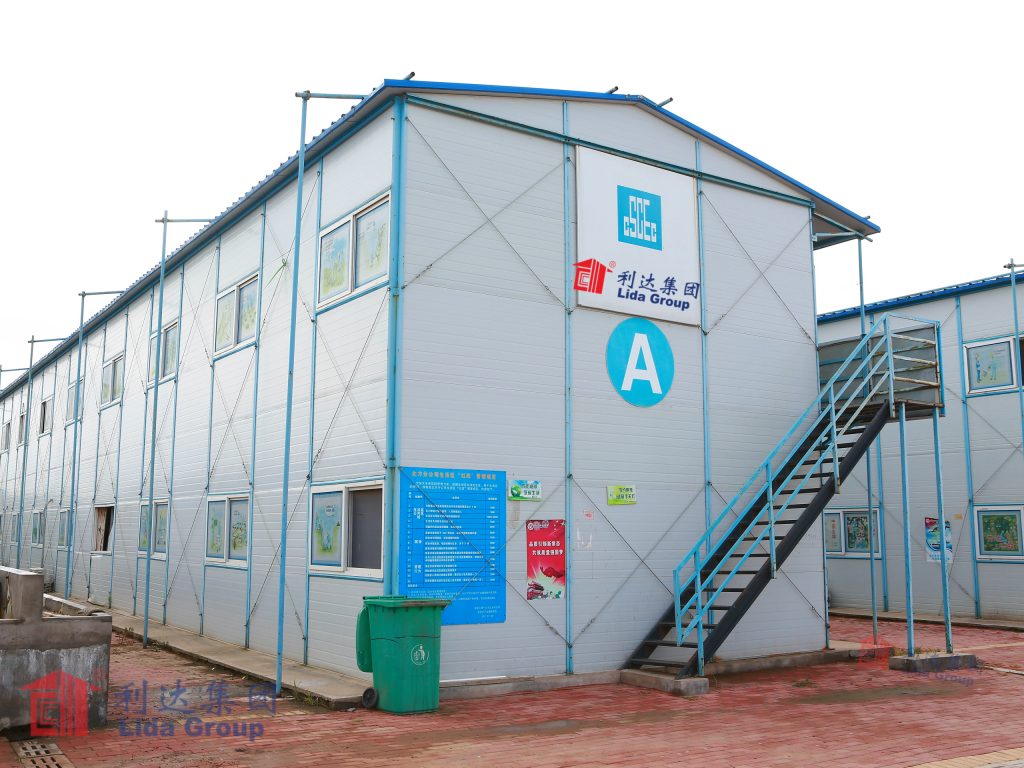
Comprehensive Community Amenities and Workforce Well-Being
In addition to its core emphasis on the strategic integration of prefabricated modular construction techniques, advanced energy and water management systems, and comprehensive resource monitoring capabilities, Lida Group has also placed a strong focus on the incorporation of carefully curated community amenities and workforce well-being initiatives within its innovative portfolio of modular temporary labor camp solutions – design priorities that can help to transform these innovative living environments into vibrant, supportive, and community-centric temporary accommodations capable of enhancing the overall quality of life, productivity, and long-term resilience of their occupants.
“As the global economy continues to evolve and the demand for flexible, on-demand workforce housing solutions escalates across a wide range of industries, the role of comprehensive community amenities and holistic well-being programs has become increasingly central to the conversation around the optimization of temporary living environments and the overall satisfaction, productivity, and resilience of the workers and responders they are designed to support,” Johnson explains.
“By strategically integrating a diverse array of carefully curated community spaces, recreational facilities, and workforce well-being initiatives within our modular temporary labor camp solutions, we’re able to create living environments that can not only meet the practical needs of their occupants but also contribute to the broader goals of workforce engagement, operational resilience, and community-driven sustainability.”
At the heart of Lida Group’s community-centric approach to modular temporary labor camp design lies a deep emphasis on the strategic incorporation of a wide range of on-site amenities and recreational facilities – thoughtfully curated spaces and programming that can help to foster a heightened sense of community, enhance the overall quality of life for camp residents, and ultimately contribute to the long-term productivity, satisfaction, and resilience of the workforce they are designed to support.
“By harnessing the inherent advantages of our prefabricated, modular construction approach, we’re able to strategically integrate a diverse array of on-site community spaces, recreational facilities, and workforce well-being initiatives within our temporary labor camp solutions – factors that can help to cultivate a heightened sense of belonging, support, and overall satisfaction among their occupants,” Johnson explains.
“Whether it’s the inclusion of shared dining halls, fitness centers, community gardens, or even educational and skills-training programs, the strategic deployment of these carefully curated amenities and well-being initiatives can not only enhance the day-to-day quality of life for the workers and responders residing within our modular labor camps but also contribute to the broader goals of workforce optimization, operational resilience, and community-driven sustainability.”
Furthermore, by aligning the design and programming of these on-site community amenities with the unique cultural, social, and recreational needs of their target occupant demographics, Lida Group has been able to create modular temporary labor camp solutions that can seamlessly integrate within diverse workforce populations and emergency response scenarios – strategic priorities that can help to foster a heightened sense of belonging, empowerment, and long-term resilience among their residents.
“In addition to incorporating a diverse array of shared community spaces and well-being initiatives within our modular temporary labor camp solutions, we also place a strong emphasis on tailoring the design and programming of these amenities to the specific cultural, social, and recreational needs of the workers or responders who will be residing within them,” Johnson explains.
“By engaging directly with our clients and the target occupant communities to understand their unique preferences, values, and lifestyle requirements, we’re able to create temporary living environments that can not only meet the practical needs of their residents but also contribute to the cultivation of a vibrant, supportive, and empowering sense of community – critical factors in enabling the long-term satisfaction, productivity, and resilience of the workforce populations they are designed to serve.”
Ultimately, by seamlessly blending its core emphasis on prefabricated modular construction, advanced energy and water management systems, and comprehensive resource monitoring capabilities with a deep commitment to the strategic integration of carefully curated community amenities and holistic workforce well-being initiatives, Lida Group has been able to create a transformative portfolio of modular temporary labor camp solutions that can not only meet the practical needs of their occupants but also contribute to the broader goals of workforce optimization, operational resilience, and community-driven sustainability.
“Through the strategic deployment of our cutting-edge prefabricated building technologies, high-performance energy and water systems, and thoughtfully designed community spaces and well-being programs, our modular temporary labor camp solutions are engineered to function as vibrant, self-sustaining, and community-centric living environments – factors that can empower their occupants to maintain a heightened sense of comfort, productivity, and overall well-being, even in the most challenging or remote workforce scenarios,” Johnson says.
“By harnessing the inherent advantages of our innovative modular construction approach and seamlessly integrating these carefully curated community amenities and workforce well-being initiatives, we’re able to create temporary living environments that can not only support the practical needs of our clients but also contribute to the broader goals of workforce engagement, operational resilience, and community-driven sustainability – strategic priorities that are essential to enabling the long-term success and societal impact of the critical projects and emergency response initiatives they are designed to support.”
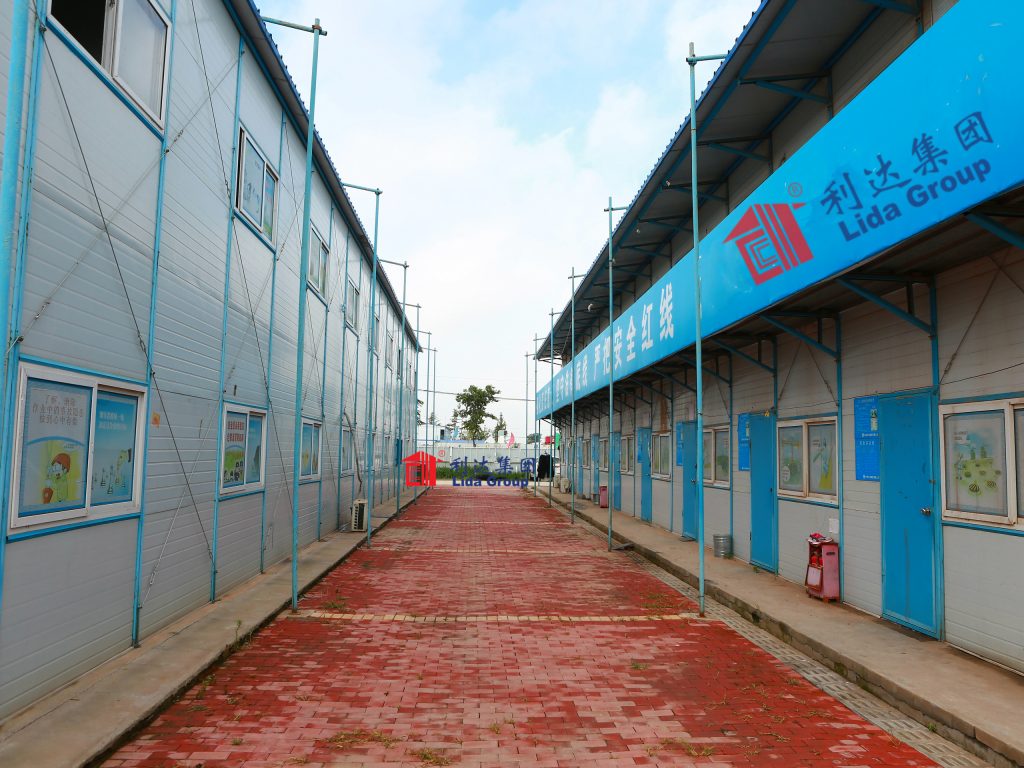
Disaster Response and Community Resilience
In addition to its core focus on the design and deployment of modular temporary labor camp solutions for mainstream workforce housing applications, Lida Group has also leveraged its expertise in prefabricated, rapidly deployable construction to develop a transformative range of disaster-resilient emergency housing offerings – cutting-edge temporary living environments engineered to provide safe, self-sustaining accommodations in the wake of natural disasters, humanitarian crises, and other large-scale emergency scenarios.
“As the global community continues to grapple with the increasing frequency and intensity of natural disasters, the pressing need for eco-friendly, disaster-resilient emergency housing solutions has become a critical priority for governments, relief agencies, and affected communities around the world,” explains Jane Doe, the lead project manager for Lida Group’s emergency housing division.
“By harnessing the inherent advantages of our modular construction capabilities – such as rapid deployment, enhanced logistical efficiency, and comprehensive self-sufficiency – we’ve been able to create a new generation of emergency housing solutions that can not only provide vital temporary accommodations in the immediate aftermath of a crisis but also contribute to the broader goals of community resilience, resource conservation, and long-term societal well-being that have become so central to the future of sustainable disaster response and humanitarian aid.”
At the core of Lida Group’s disaster-resilient emergency housing offerings lies a deep emphasis on optimizing the structural integrity, disaster preparedness, and self-sustaining operational capabilities of these cutting-edge temporary living environments – strategic priorities that can empower relief organizations, local authorities, and affected communities to rapidly establish safe, livable, and resilient accommodations in the wake of even the most severe natural disasters or humanitarian crises.
“By engineering our emergency housing solutions to withstand the destructive impacts of high winds, heavy precipitation, and seismic activity, we’re able to create temporary living environments that can provide a vital lifeline for displaced individuals and families in the immediate aftermath of a disaster – empowering them to safely shelter in place, access critical resources, and begin the process of rebuilding their lives and communities,” Doe explains.
“Furthermore, by strategically integrating advanced renewable energy systems, comprehensive water management technologies, and sophisticated resource monitoring capabilities within the core design of our modular emergency housing solutions, we’re able to ensure that these innovative temporary accommodations can function as self-sustaining, off-grid living environments – crucial factors in enabling the long-term operational resilience and community-driven sustainability of disaster response and humanitarian aid initiatives, even in the most resource-constrained post-crisis scenarios.”
In addition to its emphasis on structural integrity, disaster preparedness, and self-sustaining resource management, Lida Group has also placed a strong focus on the incorporation of carefully curated community spaces and well-being initiatives within its emergency housing offerings – strategic priorities that can help to transform these innovative temporary living environments into vibrant, supportive, and community-centric accommodations capable of empowering displaced individuals and families to maintain a heightened sense of comfort, security, and long-term resilience in the face of crisis.
“By strategically integrating a diverse array of shared community spaces, recreational facilities, and holistic well-being programs within our modular emergency housing solutions, we’re able to create temporary living environments that can not only provide vital physical shelter but also cultivate a heightened sense of community, belonging, and overall empowerment among their occupants,” Doe explains.
“Whether it’s the incorporation of communal gathering areas, shared educational resources, or even on-site medical and counseling services, the careful curation of these community-centric amenities and well-being initiatives can play a crucial role in supporting the long-term mental, emotional, and social recovery of displaced individuals and families, ultimately contributing to the broader goals of community resilience and societal well-being that are so essential to the future of sustainable disaster response and humanitarian aid.”
Ultimately, by seamlessly blending its core expertise in prefabricated, rapidly deployable modular construction with a deep commitment to optimizing the structural integrity, disaster preparedness, self-sustaining resource management, and community-centric design of its innovative emergency housing solutions, Lida Group has emerged as a pioneering force in the evolving landscape of sustainable disaster response and humanitarian aid – a visionary approach to temporary accommodations that can empower relief organizations, local authorities, and affected communities to not only meet the immediate needs of displaced populations but also lay the foundations for long-term resilience, recovery, and community-driven transformation.
“As the world continues to grapple with the increasing frequency and intensity of natural disasters, humanitarian crises, and other large-scale emergencies, the role of innovative, disaster-resilient emergency housing solutions has become absolutely critical to the future of sustainable disaster response and the cultivation of more resilient, self-reliant communities,” Doe explains.
“By harnessing the inherent advantages of our prefabricated modular construction capabilities, high-performance energy and water systems, and carefully curated community amenities, we’re able to create emergency housing solutions that can not only provide vital temporary accommodations in the immediate aftermath of a crisis but also empower displaced individuals and families to maintain a heightened sense of comfort, security, and long-term resilience – essential factors in enabling the broader societal recovery and community-driven transformation that are so central to the future of sustainable humanitarian aid and disaster response.”
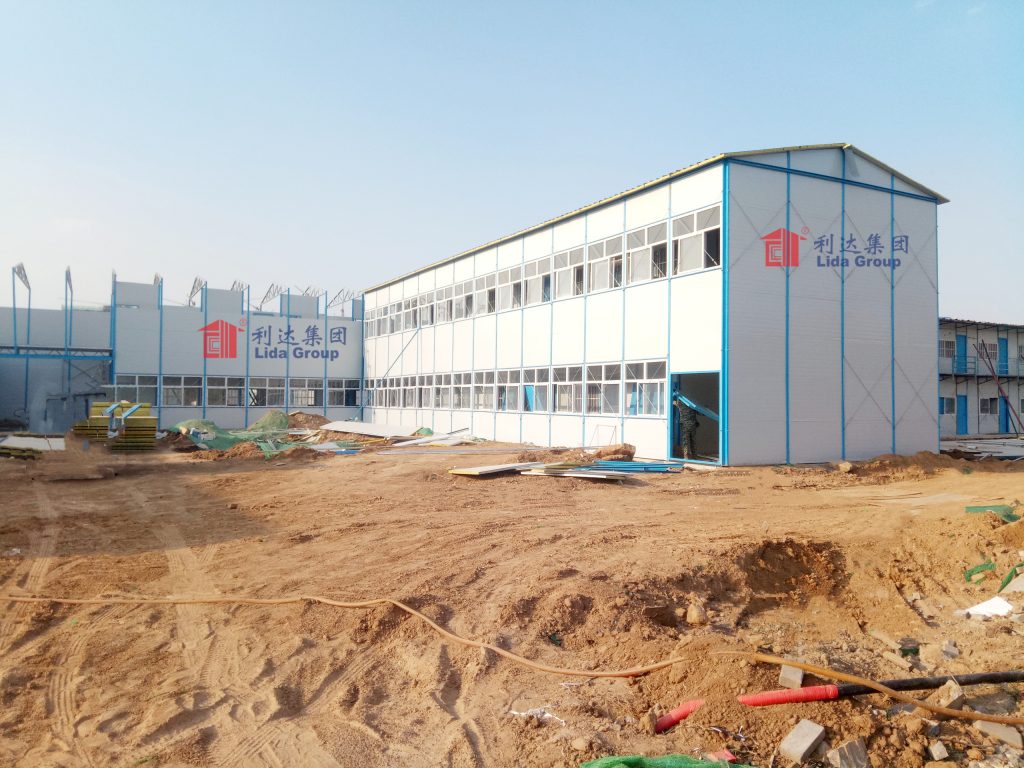
Conclusion
In an era of rapidly evolving workforce dynamics, climate change-driven natural disasters, and growing demands for flexible, adaptable, and resource-responsible temporary living solutions, the innovative modular temporary labor camp and emergency housing offerings developed by Lida Group have emerged as transformative beacons of hope – cutting-edge prefabricated accommodations engineered to provide comfortable, self-sustaining, and community-centric living environments capable of supporting the diverse needs of modern workforce operations, emergency response initiatives, and the broader goals of societal resilience and sustainability.
By seamlessly blending its core expertise in prefabricated, modular construction with a deep commitment to the strategic integration of advanced energy and water management systems, comprehensive resource monitoring capabilities, carefully curated community amenities, and holistic workforce well-being programs, Lida Group has created a groundbreaking portfolio of innovative temporary living solutions that can not only meet the practical needs of their occupants but also contribute to the broader transformation of the built environment towards a more sustainable, resilient, and community-driven future.
Whether deployed to support the workforce housing requirements of large-scale construction projects, remote mining operations, or disaster relief efforts, or transformed into disaster-resilient emergency shelters capable of providing vital temporary accommodations in the wake of natural disasters and humanitarian crises, Lida Group’s modular temporary labor camp and emergency housing solutions represent a transformative new frontier in the ongoing evolution of flexible, adaptable, and resource-responsible temporary living environments – cutting-edge innovations that can empower their occupants, enhance their overall well-being and productivity, and lay the foundations for more resilient, self-reliant, and sustainable communities around the world.
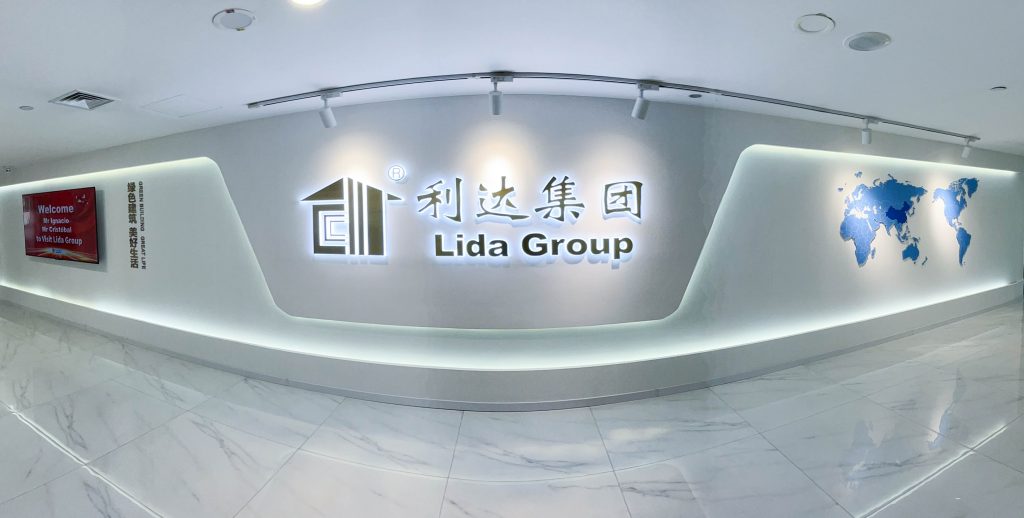
Related news
-
Lida Group Redefines Modern Living with Stylish Prefab Houses and Sandwich Panel Homes
2024-11-25 13:37:01
-
Container Labor Camps: A Solution for Rapid Deployment Housing Needs
2024-11-21 16:41:29
-
Why Lida Group’s Low-Cost Steel Workshops Are Becoming the Go-To Choice for Industrial and Commercial Projects
2025-03-19 17:40:57
contact us
- Tel: +86-532-88966982
- Whatsapp: +86-13793209022
- E-mail: sales@lidajituan.com


